Pakistan is a land of unparalleled cultural richness, boasting a heritage shaped by centuries of history, art, and traditions. From the intricate designs of handwoven fabrics to the masterful artistry of calligraphy, every region of Pakistan tells a unique story through its crafts. For travelers and enthusiasts, souvenirs from Pakistan serve as more than just keepsakes—they are windows into the country’s vibrant heritage and creative spirit.
Souvenirs hold immense value as tangible memories of journeys, offering a way to preserve experiences and connect with the local culture. Whether it’s a hand-carved wooden decoration or a beautifully embroidered shawl, these items reflect the skills and traditions of the artisans who create them. Pakistan’s diverse handicrafts and artistry stand as a testament to the country’s dedication to preserving its cultural identity. Indeed, souvenirs from Pakistan are a gateway to its vibrant culture, inviting people worldwide to explore its beauty and heritage.
Why Choose Souvenirs from Pakistan?
The Cultural Significance
Souvenirs from Pakistan hold profound cultural value, deeply rooted in the nation’s rich heritage. Each item represents centuries-old traditions passed down through generations, embodying the spirit and stories of local communities. As highlighted in the IUCN report, these souvenirs play a crucial role in preserving intangible cultural heritage by keeping traditional crafts alive. Whether it’s the vibrant Sindhi ajrak or intricately designed blue pottery, these items act as cultural ambassadors, showcasing Pakistan’s diversity and history to the world.
Economic and Social Impact
Purchasing souvenirs from Pakistan has a far-reaching impact on local economies and communities. Small businesses and artisans rely on these sales as a primary source of livelihood, with each purchase contributing to sustaining their crafts. For example, as detailed in Asif Javed’s study on the Bari Imam shrine, religious souvenirs significantly support local vendors while fostering a spiritual connection with visitors. This economic ecosystem creates a symbiotic relationship between tourists and communities, reinforcing the importance of promoting local craftsmanship.
Sustainable Tourism through Souvenirs
Handmade souvenirs from Pakistan not only celebrate culture but also champion sustainability. Eco-friendly products, crafted using traditional methods, reduce the environmental footprint compared to mass-produced alternatives. As noted by Liping Qiu et al., innovative souvenir designs that integrate cultural motifs with contemporary aesthetics help preserve heritage while appealing to modern consumers. Choosing such items supports sustainable tourism practices, making every purchase an investment in Pakistan’s future.
Iconic Souvenirs to Buy from Pakistan
Handicrafts: Timeless Creations from Pakistan
Pakistan’s handicrafts are a true reflection of its cultural heritage and artistic excellence. Each handcrafted piece carries the essence of its region, telling stories of tradition, creativity, and skill passed down through generations. These items are not just souvenirs but also symbols of the country’s rich history and artistic diversity.
Peshawari Chappals: Tradition and Style
The iconic Peshawari chappal, originating from the Khyber Pakhtunkhwa province, is a perfect blend of comfort and tradition. Crafted with fine leather and often adorned with intricate patterns, these sandals are a staple in Pakistani culture. Their durability and timeless design have made them popular worldwide, even finding a place in contemporary fashion.


Picture Credits: mensgallery.pk
Camel Leather Products: Sustainable Craftsmanship
Camel leather products from Pakistan, such as bags, wallets, and belts, highlight the artisans’ commitment to sustainable practices. These items are crafted with natural materials, ensuring minimal environmental impact while offering superior quality. Their earthy tones and elegant designs make them cherished keepsakes for anyone who values sustainable and ethical fashion.
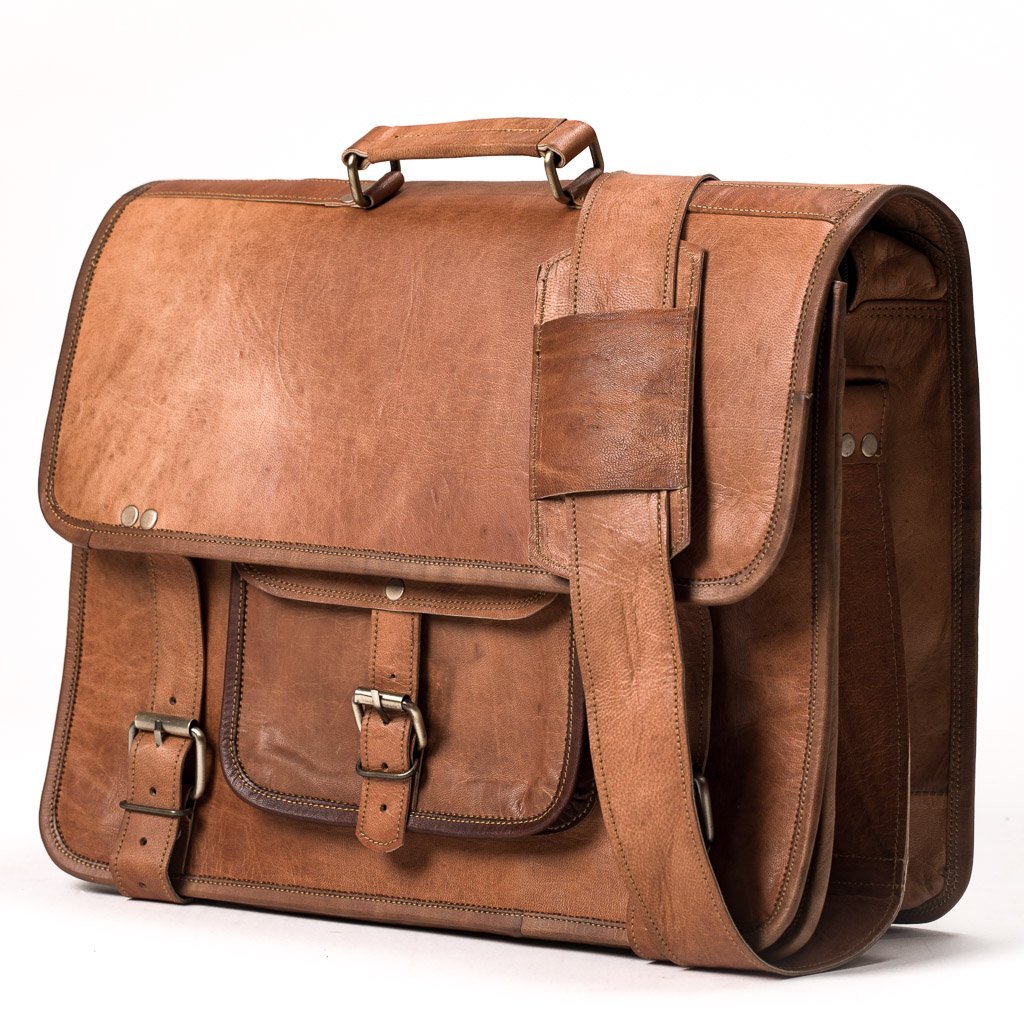

Picture Credits: stridewise.com
Sindhi Ajrak: A Cultural Emblem
The Sindhi ajrak is a distinctive block-printed fabric that holds deep cultural significance in Sindh. Its intricate geometric patterns, created with natural dyes, symbolize harmony and tradition. Often worn as shawls, scarves, or turbans, the ajrak has become a cultural icon and a must-have souvenir for those seeking a touch of Sindhi heritage.


Picture Credit: live.staticflickr.com
Blue Pottery from Multan: The Art of Elegance
The vibrant blue pottery of Multan is renowned for its intricate floral and geometric designs. Made using unique techniques, this art form has been preserved for centuries. From vases and tiles to decorative plates, blue pottery items are not just functional but also visually captivating, making them perfect additions to any home.
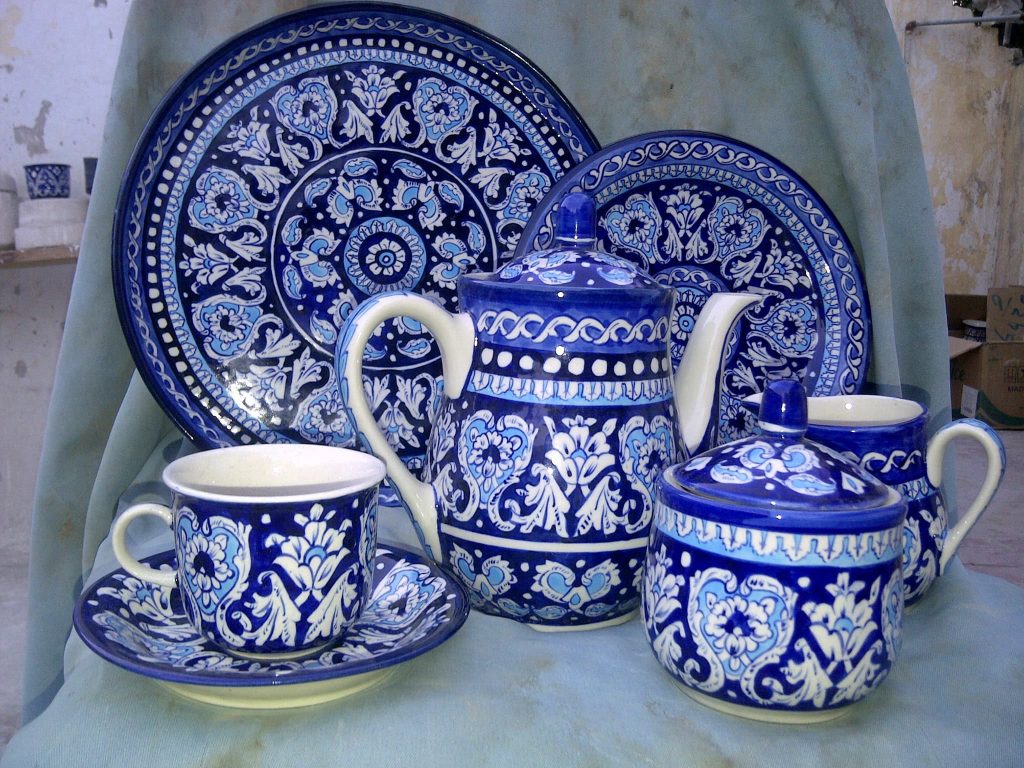

Picture Credit: travelgirls.pk
Handwoven Shawls from Swat: Warmth and Grace
The handwoven shawls of Swat are celebrated for their soft texture and meticulous craftsmanship. Made from wool or pashmina, these shawls are both stylish and functional, offering warmth while showcasing the artistry of the region. Their intricate embroidery and vibrant colors make them treasured souvenirs and gifts.
Picture Credits: vceela.com
Beyond Regional Crafts
In addition to these iconic items, Pakistan offers a vast array of other handicrafts, including wooden carvings, brass ornaments, and embroidered cushions. Each piece reflects the creativity and dedication of local artisans, preserving centuries-old techniques while adapting to modern tastes.
A Celebration of Heritage
Buying Pakistani handicrafts is not just about owning a piece of art—it’s about celebrating the country’s rich heritage and supporting the artisans who keep these traditions alive. These exquisite creations make for meaningful souvenirs, embodying the spirit of Pakistan’s diverse culture and unmatched craftsmanship.
Jewelry: Elegance and Heritage in Every Piece
Jewelry from Pakistan is a captivating fusion of tradition and modernity, blending intricate designs with timeless elegance. Each piece reflects the country’s rich heritage, showcasing the craftsmanship and creativity of its artisans. Whether traditional or contemporary, Pakistani jewelry offers something unique for every taste.
Traditional Jewelry: A Window to the Past
Traditional Pakistani jewelry is deeply rooted in cultural significance and historical craftsmanship. Silver ornaments are among the most cherished pieces, often embellished with detailed engravings and unique regional motifs. From bold chokers to delicate bangles, these pieces are steeped in tradition and tell stories of the regions they originate from. Bridal sets, adorned with intricate designs, remain a cornerstone of cultural celebrations and are prized by collectors and visitors alike.


Picture Credits: olocker.in
Semi-Precious Gemstone Jewelry
Pakistan is home to some of the world’s finest semi-precious gemstones, including lapis lazuli, turquoise, garnet, and peridot. Artisans skillfully incorporate these vibrant stones into rings, necklaces, and earrings, creating stunning pieces that capture the natural beauty of the region. These gemstones not only add color and character to the jewelry but also offer buyers a connection to the rich geological heritage of Pakistan.
Modern Jewelry: Contemporary Elegance
While traditional designs remain popular, modern jewelry from Pakistan has seen a surge in demand. Designers are now blending classic elements with contemporary styles to create pieces that appeal to a global audience. Minimalistic designs, geometric patterns, and innovative materials are being used to craft jewelry that complements modern aesthetics while retaining a touch of cultural heritage.
Regional Inspirations
Pakistani jewelry is often inspired by the cultural diversity of its regions:
- Sindhi Designs: Bold and vibrant, Sindhi jewelry often features intricate patterns and heavy embellishments.
- Baluchi Jewelry: Known for its distinctive tribal aesthetic, Baluchi jewelry incorporates detailed metalwork and large stones.
- Kashmiri Ornaments: Delicate and ornate, Kashmiri jewelry showcases the fine artistry of the region, often drawing inspiration from nature.
Supporting Artisan Communities
Purchasing jewelry from Pakistan is more than acquiring a beautiful accessory—it’s an investment in preserving centuries-old craftsmanship. Local artisans rely on these sales to sustain their livelihoods and continue the traditions passed down through generations. By supporting these communities, buyers contribute to the preservation of a rich cultural legacy.
A Meaningful Keepsake
Jewelry from Pakistan is not just a souvenir; it’s a piece of art that embodies the elegance and heritage of the country. Whether adorned with semi-precious gemstones or crafted in silver with traditional motifs, each item carries a story and a touch of the artisan’s soul, making it a treasured addition to any collection.
Textiles
Pakistan’s textile industry is celebrated for its high-quality products that blend art and functionality. Items like embroidered shawls, phulkari, and block-printed fabrics are renowned for their beauty and durability. These textiles not only reflect Pakistan’s cultural richness but also hold significant value as fashionable and versatile gifts.
Artwork: A Celebration of Pakistan’s Creative Spirit
Art has always been a profound medium for expressing Pakistan’s cultural identity, and its rich traditions are reflected in unique and iconic art forms. From the delicate strokes of miniature paintings to the vibrant colors of truck art and the spiritual beauty of Islamic calligraphy, each form of art tells a story that resonates with the country’s history and heritage.
Miniature Paintings: Timeless Elegance
Miniature paintings are one of the most intricate and historically significant art forms in Pakistan, with roots tracing back to the Mughal era. These paintings often depict scenes of court life, battles, or nature, rendered in fine detail with vibrant natural pigments. The craftsmanship required for miniature paintings is extraordinary, with artists dedicating hours, sometimes days, to perfecting a single piece. Owning a miniature painting is like holding a piece of history, making it a highly coveted souvenir for art lovers.


Picture Credits: metalposterart.com
Truck Art: Vibrant Expressions on Wheels
Truck art is perhaps the most visually striking representation of Pakistan’s street culture. This folk art transforms everyday vehicles into moving canvases adorned with bold patterns, colorful flowers, landscapes, and portraits of iconic figures. Beyond their aesthetic appeal, these designs often carry messages of love, patriotism, or humor, reflecting the emotions and beliefs of the artists and drivers. Truck art has gained international recognition, inspiring fashion, home decor, and even accessories like bags and phone cases. Its widespread appeal makes it a vibrant and memorable souvenir.


Picture Credits: thereporters.pk
Islamic Calligraphy: The Spiritual Art
Islamic calligraphy holds a special place in Pakistan’s artistic tradition, blending spirituality with aesthetics. This art form often features Quranic verses and Arabic scripts, meticulously crafted into intricate designs on paper, canvas, wood, or ceramic. Calligraphy showcases not only the artist’s skill but also their devotion, as the process is often meditative and symbolic. Pieces of Islamic calligraphy are more than decorative—they carry profound meaning, making them treasured gifts or keepsakes.


Picture Credits: storage.googleapis.com
Decorative Art: Beyond Tradition
In addition to traditional forms, Pakistan is home to a growing community of contemporary artists who reinterpret cultural themes for modern audiences. This includes abstract art inspired by regional motifs, hand-painted ceramics, and innovative wall hangings. These pieces blend the old and the new, making them ideal for those looking to add a touch of Pakistani culture to their modern homes.


Picture Credits: artificialpaintings.com
Promoting Artists and Art Globally
Pakistan’s art scene is not only thriving locally but also gaining global acclaim. Platforms like exhibitions, online marketplaces, and cultural festivals allow Pakistani artists to showcase their talent on the world stage. Purchasing these artworks supports local artists and ensures the continuity of these traditions for future generations.
Artworks from Pakistan make for meaningful souvenirs, not just for their beauty but for the stories they tell. Whether it’s the elegance of miniature paintings, the lively charm of truck art, or the soulful intricacy of Islamic calligraphy, each piece serves as a bridge between the rich traditions of Pakistan and the rest of the world.
Religious Souvenirs: Spiritual Keepsakes from Pakistan
Religious souvenirs from Pakistan hold a deep spiritual significance, offering a tangible connection to faith and devotion. These items not only reflect the country’s rich Islamic traditions but also serve as meaningful gifts and personal keepsakes for those who wish to carry a piece of their spiritual journey with them.
Tasbeeh (Prayer Beads): A Symbol of Devotion
Tasbeeh, or prayer beads, is one of the most popular religious souvenirs in Pakistan. Traditionally made from materials like wood, glass, or semi-precious stones, tasbeeh is used for reciting supplications or Quranic verses. They are often intricately designed, making them both functional and decorative. The process of selecting a tasbeeh often carries personal meaning, as the materials and craftsmanship reflect the buyer’s preferences and intentions.
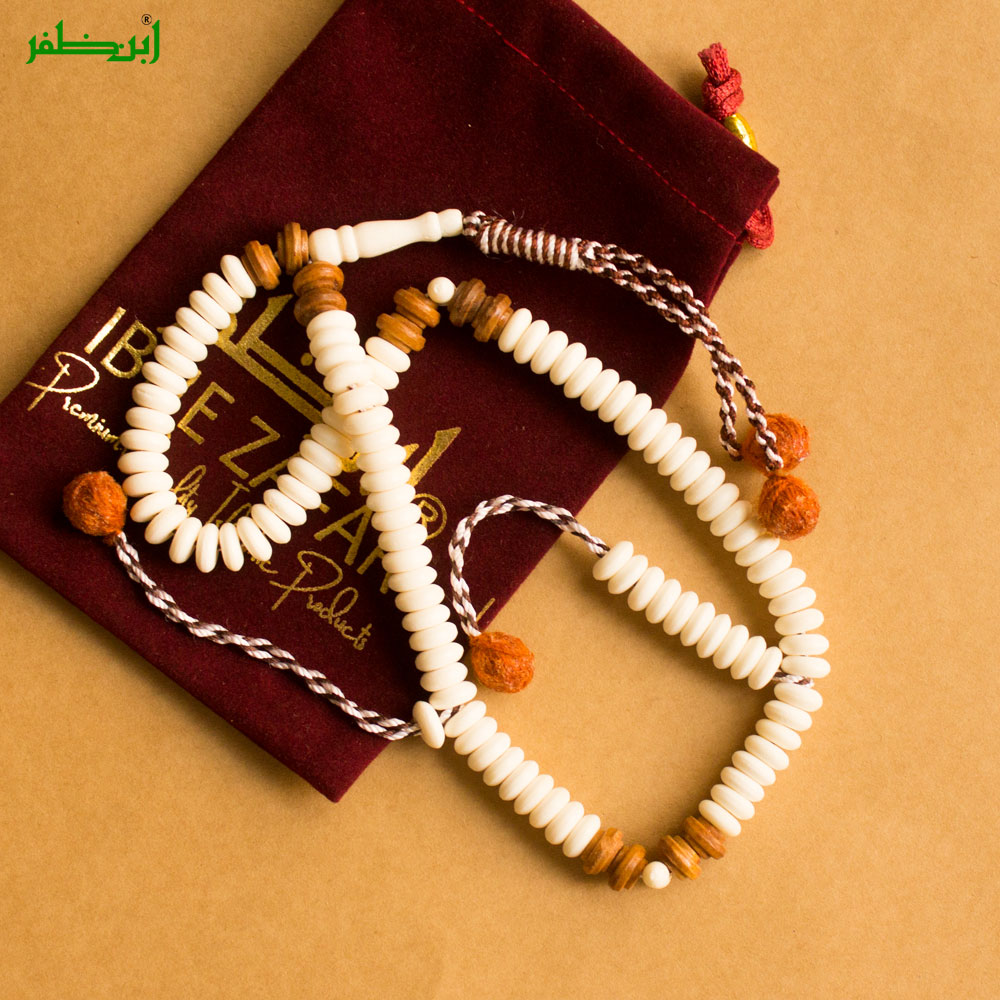

Picture Credits: ibnezafar.com
Wall Hangings Featuring Quranic Verses
Decorative wall hangings inscribed with Quranic verses are another cherished souvenir. These pieces blend art and spirituality, showcasing exquisite calligraphy styles often adorned with embellishments like gold leaf, wood carvings, or hand-painted motifs. Such items are not only a source of inspiration but also a way to elevate the sanctity of one’s home or workspace.


Picture Credits: handmadeegy.com
Islamic Artifacts and Decorative Pieces
Beyond tasbeeh and wall hangings, Pakistan offers a wide range of Islamic artifacts, including beautifully crafted prayer mats, miniature replicas of mosques, and decorative plaques. These items make thoughtful gifts, symbolizing good wishes and blessings for loved ones.


Picture Credits: rugbyobserver.co.uk
Ensuring Ethical Sourcing and Representation
Inspired by the commodification study of religious souvenirs, it is vital to approach these items with sensitivity and respect for their sanctity. Here are key considerations:
- Ethical Sourcing: Ensure that the items are created by artisans who uphold the integrity of their craft, avoiding mass-produced or exploitative practices.
- Authenticity: Seek products that preserve the essence of Islamic tradition, using high-quality materials and designs that honor their spiritual purpose.
- Cultural Respect: Avoid items that misrepresent or commercialize religious symbols inappropriately.
By supporting local artisans and ethical practices, buyers can ensure their purchases contribute positively to both the artisan communities and the preservation of Islamic traditions.
Religious souvenirs from Pakistan are more than objects—they are reminders of faith, devotion, and cultural heritage. Whether gifted or kept as personal treasures, these items carry profound meaning and serve as a bridge between the spiritual and the tangible.
Food Items: A Taste of Pakistan’s Culinary Heritage
Edible souvenirs from Pakistan offer travelers a unique way to connect with the country’s rich and diverse culinary traditions. These items are not just delicious; they are a reflection of Pakistan’s cultural heritage, making them perfect gifts to share with loved ones or enjoy as a personal reminder of your journey.
Dry Fruits: Nature’s Treats
Pakistan is renowned for its high-quality dry fruits, particularly from the northern regions of Gilgit-Baltistan and Balochistan. Almonds, walnuts, pistachios, and dried apricots are among the most popular choices. Known for their natural sweetness and superior quality, these dry fruits are a wholesome and healthy souvenir that represents the country’s agricultural richness.


Picture Credits: images.healthshots.com
Mithai (Traditional Sweets): A Sweet Indulgence
Mithai, or traditional sweets, are an integral part of Pakistani celebrations and hospitality. Favorites like gulab jamun, barfi, and soan papdi are beloved across the country. Packed in decorative boxes, mithai not only delights the taste buds but also offers a glimpse into Pakistan’s festive spirit and culinary artistry. These make for thoughtful gifts that evoke the warmth of Pakistani culture.
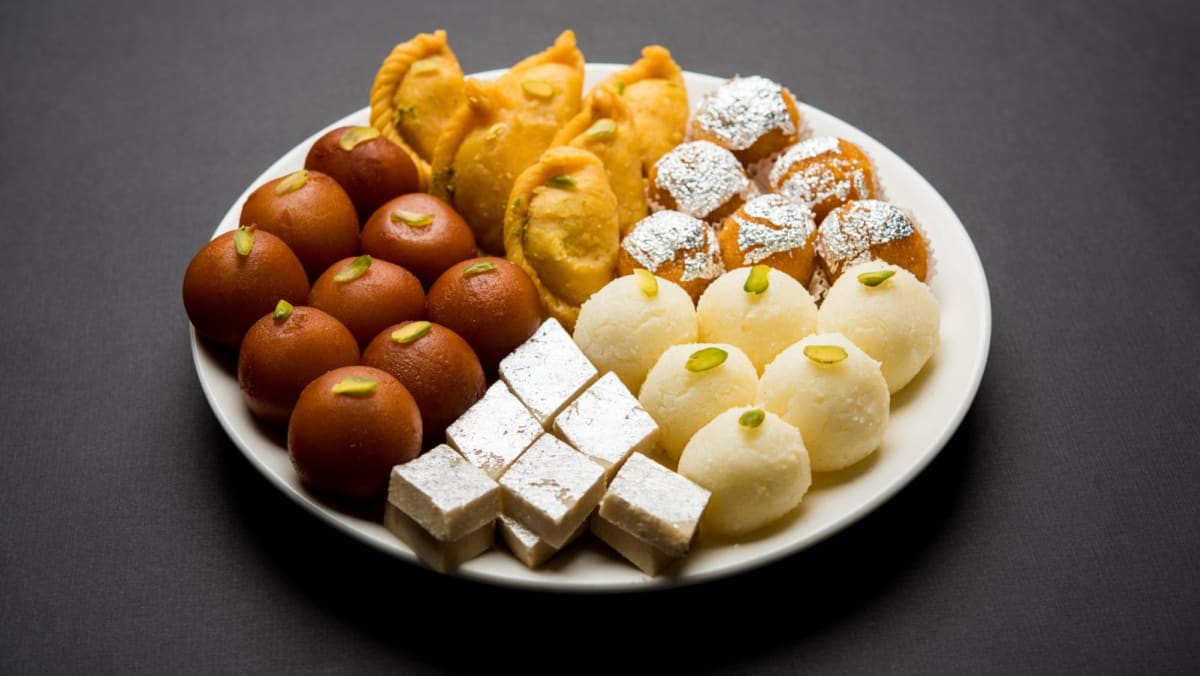

Picture Credits: dam.mediacorp.sg/
Spices: The Flavors of Tradition
Pakistani cuisine is celebrated for its bold and aromatic flavors, largely attributed to its rich array of spices. Souvenirs like cumin, cardamom, cinnamon, and chili powders are perfect for recreating the authentic taste of Pakistani dishes at home. Specialty spice blends, such as garam masala or biryani mix, are also popular choices, capturing the essence of the country’s traditional cooking.


Picture Credits: info.ehl.edu/
Tea Blends: A Sip of Pakistan
Tea holds a special place in Pakistani culture, enjoyed daily across the country. Regional blends, such as Karak Chai or Kashmiri Pink Tea, are particularly sought after. These teas are often infused with cardamom, saffron, or other spices, making them a flavorful and comforting reminder of Pakistan’s hospitality.
:max_bytes(150000):strip_icc()/GettyImages-622039222-0baa33b41b304236b6399f87b34e41ce.jpg)
:max_bytes(150000):strip_icc()/GettyImages-622039222-0baa33b41b304236b6399f87b34e41ce.jpg)
Picture Credits: thespruceeats.com
Unique Regional Specialties
- Chilgoza (Pine Nuts): Harvested in the forests of Balochistan, chilgoza is a rare and prized delicacy.
- Honey: Pakistan produces a variety of high-quality honey, especially from the northern valleys, known for its purity and health benefits.
- Pickles and Chutneys: Traditional pickles and chutneys, made with mangoes, lemons, or mixed vegetables, are perfect for adding a tangy twist to meals.
A Culinary Journey
Edible souvenirs from Pakistan are more than just food; they are a journey into the country’s diverse culinary heritage. Whether it’s the sweetness of mithai, the warmth of spices, or the comforting aroma of tea, these items bring the flavors of Pakistan to your table and make for unforgettable keepsakes.
Perfect Gifts for Loved Ones
Packaged beautifully and bursting with flavor, these edible treasures are ideal gifts for friends and family. They allow travelers to share a piece of Pakistan’s vibrant food culture, making every bite a reminder of the country’s hospitality and culinary excellence.
Where to Buy Souvenirs in Pakistan?
Local Markets
Pakistan’s vibrant bazaars and traditional markets are treasure troves for finding authentic souvenirs that reflect the country’s cultural diversity. Among the most popular are:
- Liberty Market, Lahore: Known for its wide variety of handcrafted items, including shawls, jewelry, and traditional clothing. This market offers a blend of modern and traditional products, making it a favorite for tourists.
- Raja Bazaar, Rawalpindi: A bustling hub for affordable and unique finds. From handwoven carpets to intricate pottery, this bazaar is a go-to destination for authentic Pakistani souvenirs.
- Saddar, Karachi: This iconic market is famous for its antique shops, camel leather goods, and Sindhi ajrak. It also provides a glimpse into Karachi’s rich cultural fabric.
Traditional markets like these not only offer a variety of unique items but also serve as platforms for artisans to showcase their work. Shopping here ensures that visitors directly contribute to local economies and support the preservation of cultural crafts.
Online Platforms
The rise of e-commerce in Pakistan has made it easier than ever to purchase souvenirs from the comfort of home. Many platforms now feature collections of handmade products, connecting artisans with a global audience.
- TrulyPakistan’s Initiative: Aligning with its mission to promote cultural heritage, TrulyPakistan is developing a platform to digitalize the souvenir shopping experience. This ensures authentic products reach buyers while supporting local artisans.
- Ethical Shopping: Many online marketplaces prioritize fair trade and sustainability, providing customers with the assurance that their purchases are ethically sourced. These platforms are instrumental in preserving traditions and empowering artisan communities.
Whether you prefer exploring the lively streets of local markets or browsing online for convenience, Pakistan offers countless opportunities to bring home a piece of its vibrant culture.
Tips for Choosing Authentic Souvenirs
Buy Directly from Artisans
One of the best ways to ensure authenticity is to purchase souvenirs directly from the artisans who craft them. Visiting local markets or artisan workshops allows you to:
- Gain insights into the creation process.
- Support the livelihoods of skilled craftsmen and preserve traditional crafts.
- Obtain unique, handcrafted items that hold cultural significance, rather than mass-produced replicas.
This direct interaction fosters a deeper connection to the cultural roots of the souvenirs and helps sustain the artisan community.
Verify Sustainable Practices and Fair-Trade Certifications
When selecting souvenirs, it’s essential to prioritize products that align with ethical and sustainable values:
- Look for certifications or labels indicating fair trade and eco-friendly practices.
- Choose items made from renewable or recycled materials to support environmental sustainability.
- Avoid purchasing souvenirs made from endangered species or non-sustainable materials.
By doing so, you ensure that your purchase contributes positively to local economies and the environment.
Spotting Fake or Mass-Produced Items
In bustling markets, distinguishing genuine handmade crafts from mass-produced imitations can be challenging. Here’s how to identify authentic items:
- Examine the Details: Handcrafted items often have minor imperfections, which add to their uniqueness, unlike machine-made products that appear flawless.
- Ask Questions: Engage with sellers to learn about the product’s origin, materials, and craftsmanship. Artisans are usually eager to share their stories and techniques.
- Check the Price: If an item is significantly cheaper than similar products, it may be mass-produced. Authentic crafts require time, effort, and skill, which are reflected in their pricing.
By following these tips, you can confidently select souvenirs that not only represent Pakistan’s rich culture but also make a meaningful contribution to its artisan communities.
The Future of Souvenirs in Pakistan
Role of Innovation in Promoting Traditional Crafts
The future of Pakistan’s souvenir industry lies in its ability to blend tradition with modernity. Innovation plays a pivotal role in revitalizing traditional crafts by:
- Combining Modern Designs with Cultural Motifs: Artisans can integrate contemporary aesthetics into traditional items, such as reimagining Sindhi ajrak patterns on handbags or incorporating truck art into lifestyle products like phone cases and home decor.
- Leveraging Technology: Digital platforms and tools like 3D printing can help artisans create intricate designs while maintaining the essence of their craft. This approach caters to evolving consumer preferences while preserving cultural identity.
Such innovations not only attract younger, design-conscious audiences but also keep traditional art forms relevant in a globalized market.
Opportunities for Sustainable Tourism
Sustainable tourism is a growing global trend, and souvenirs have a significant role to play. As highlighted by Bakhtiar Ahmed’s insights on Northern Areas:
- Eco-Friendly Crafts: Promoting souvenirs made from sustainable materials like organic fabrics, recycled metals, or naturally dyed textiles aligns with the principles of responsible tourism.
- Support for Artisan Communities: By showcasing the work of local artisans in tourist destinations, the souvenir industry can foster community empowerment and create a ripple effect on local economies.
- Cultural Preservation: Souvenirs that reflect regional traditions encourage tourists to appreciate and respect Pakistan’s diverse heritage, further strengthening the connection between tourism and cultural preservation.
TrulyPakistan’s Initiatives
TrulyPakistan is at the forefront of transforming the souvenir industry by:
- Creating a Digital Marketplace: The platform connects global buyers with local artisans, ensuring cultural products are accessible worldwide.
- Highlighting Artisans’ Stories: By sharing the background and craftsmanship behind each product, TrulyPakistan helps buyers appreciate the cultural significance of their purchases.
- Promoting Ethical Practices: The platform emphasizes sustainability, fair trade, and eco-friendly initiatives, aligning with global trends and values.
With these initiatives, TrulyPakistan is not only redefining how souvenirs are marketed and sold but also setting a benchmark for the industry to support artisans and preserve Pakistan’s cultural legacy.
As Pakistan’s souvenir industry embraces innovation and sustainability, it has the potential to become a global symbol of cultural heritage and responsible tourism. Through strategic efforts and platforms like TrulyPakistan, the future of souvenirs in Pakistan is bright and promising.
Souvenirs from Pakistan embody the essence of the nation’s rich heritage and timeless artistry. From intricately crafted textiles to vibrant artwork and eco-friendly handmade products, each item tells a story of tradition, skill, and cultural pride. These treasures are more than just keepsakes—they are bridges that connect travelers to the heart of Pakistan’s diverse and captivating culture.
Exploring Pakistan’s handicrafts offers a unique opportunity to celebrate the country’s vibrant traditions while supporting local artisans and sustainable tourism. Whether it’s the bold patterns of Sindhi ajrak, the elegance of hand-carved wooden artifacts, or the flavors of traditional sweets, every souvenir holds a piece of Pakistan’s soul.
Embark on a journey through Pakistan’s culture and bring a piece of it home with you!
References:
- DS Fifth Discussion Paper
Read on ResearchGate - Innovative Design of Agricultural Tourism Souvenirs
Read on PakJAS - Cultural Tourism in Pakistan
Read on Tandfonline - Sustainable Tourism and Cultural Heritage
Read on IUCN Library - Chapter 3 on Souvenirs and Cultural Tourism
Download on Academia.edu - Religious Commodification in Pakistan
Read on PIDE Thesis Repository - Revival of the Traditional Handicraft Enterprising Community in Pakistan
Read on Emerald Insight - Heliyon Research on Sustainable Crafts
Read on Cell.com - Pakistan Studies Journal
Read on Punjab University - The Northern Areas Tourism Study
Read on NUST Repository

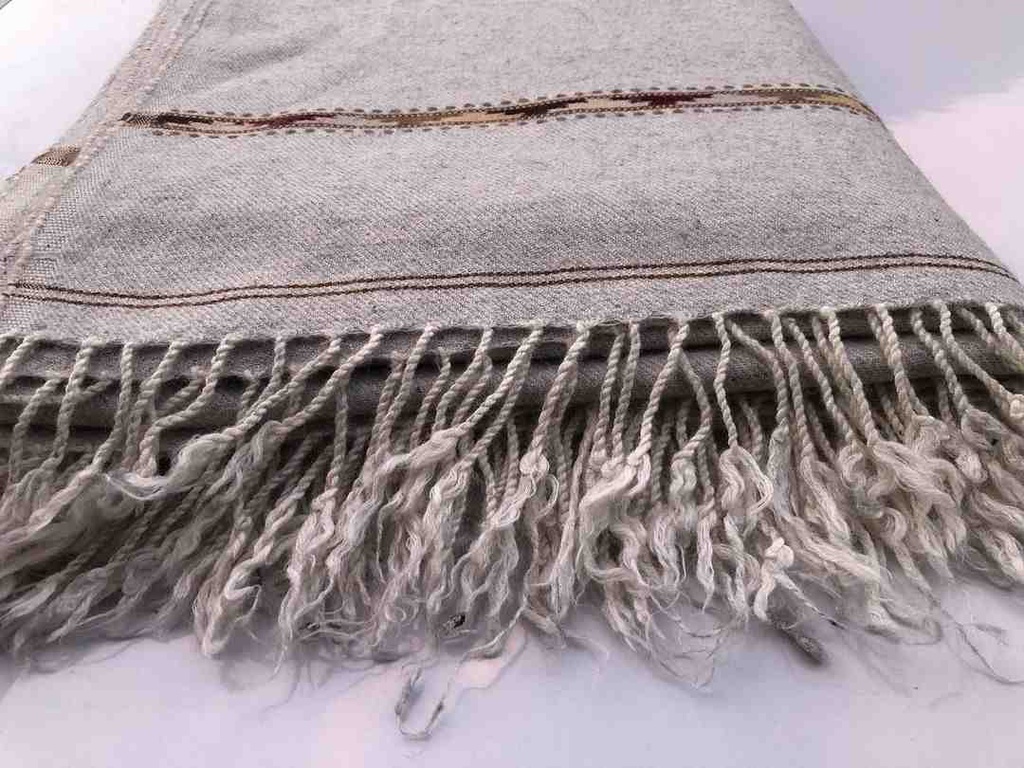
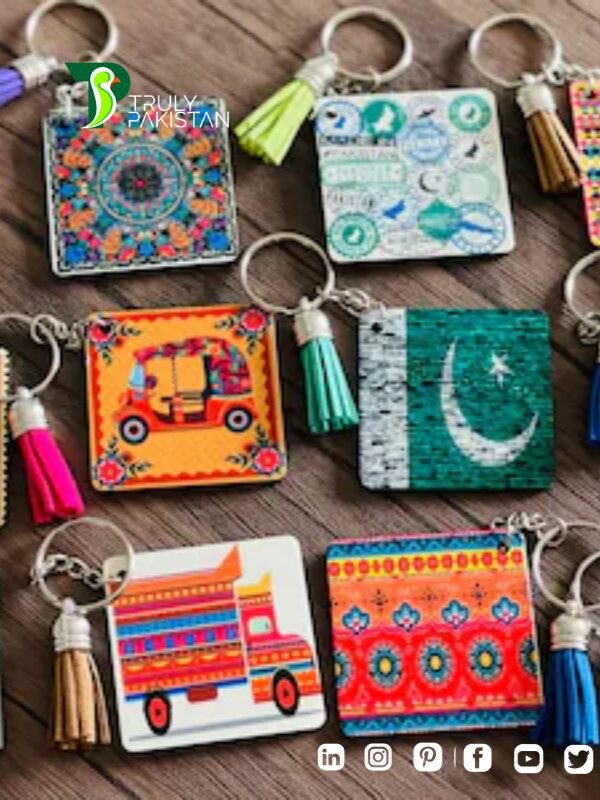
MWCarpets says:
Great Infomration! Love you author
Handmade Carpets Blog says:
Pakistan is a land of unparalleled cultural richness, boasting a heritage shaped by centuries of history, art, and traditions.